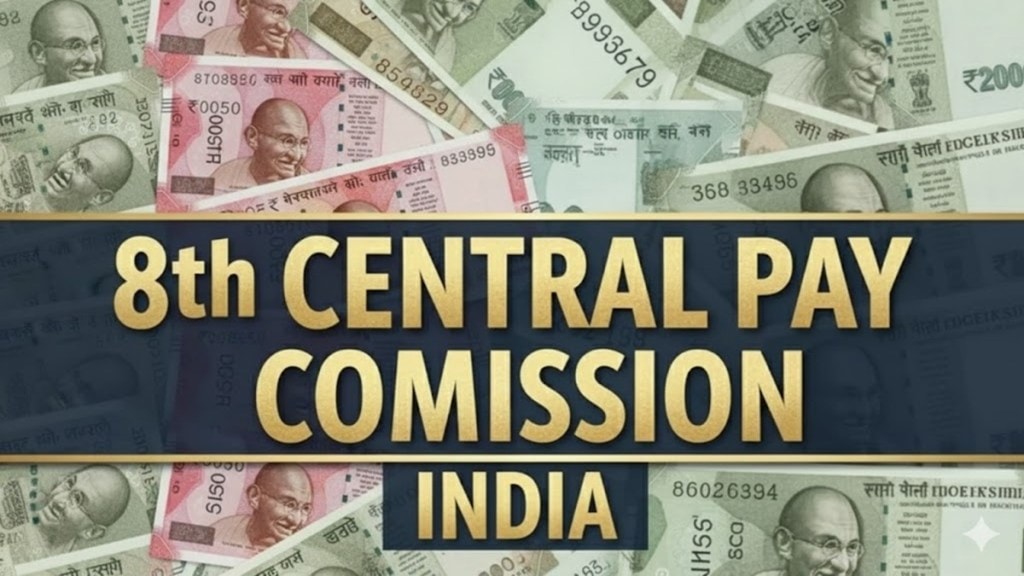8th Pay Commission News: Finally, over 1.2 crore central government employees and pensioners have something to cheer about. The Centre, after nearly 10 months of announcing the new pay panel, has approved the Terms of Reference (ToR) for the new pay panel, to be headed by Justice Ranjana Prakash Desai.
The panel, which will have two other members, has been tasked with recommending a new emoluments structure, retirement benefits, and other service conditions for central government employees and pensioners within 18 months. This means the commission will likely submit its report to the government by April 2027.
Government employees hoping for an early rollout of the 8th Central Pay Commission (CPC) recommendations may need to manage their expectations. If we go by past experiences, the timelines of the previous two pay commissions suggest that the implementation of the 8th pay panel may stretch well into 2028.
Looking back: how long did the 6th and 7th CPCs take?
A quick look at the previous two pay panels gives some perspective on how long the process typically takes:
6th Pay Commission timeline
The 6th Pay Commission formation was first announced in July 2006 during the UPA-1 regime. The panel was formally constituted and ToR approved in October 2006. The commission finally submitted its report after 18 months in March 2008. After about 8 months of report submission, the UPA-1 Cabinet approved the 6th Pay Commission report in August 2008.
So, from ToR approval date till Cabinet nod, it took around 22 months for the implementation of panel’s recommendations. Its recommendations, however, were implemented retrospectively from January 1, 2006.
7th Pay Commission timeline
7th Central Pay Commission was first announced during the UPA-2 regime in September 2013. The panel was constituted and terms of reference (ToR) approved by the Union Cabinet after about five months in February 2014.
The 7th Pay Panel submitted its report in November 2015, taking 18 months. The recommendations were approved by the NDA government-led by Narendra Modi in June 2016.
Roughly, it took 28 months between ToR approval and the final implementation of the panel’s recommendations. Again, implementation was retrospective from January 1, 2016.
So, in the previous two pay commissions, the gap between the ToR and implementation of recommendations has ranged between 22 and 28 months.
8th Pay Commission’s likely final implementation
Applying the same logic to the 8th CPC, whose ToR has been finalised now in October 2025, Cabinet clearance may not come before 2028. Even a best-case scenario points to early late 2027 to early 2028, if everything runs smoothly.
A late start to the 8th Pay Commission
The 8th pay panel was announced on January 16, 2025, but the approval of Terms of Reference (ToR) — the official rulebook defining what the Commission will study — took more than nine months and was approved only on October 28, 2025.
Under the approved timeline, the Commission has 18 months to complete its review and submit its report — which means a likely submission deadline around April 2027. The report will include recommendations on salary, pension, allowances and service conditions for Central Government employees and pensioners.
What the 8th CPC will examine
The Terms of Reference approved by the Cabinet lay out a comprehensive mandate. The 8th CPC will:
-Review and recommend changes in the salary structure of Central Government employees.
-Examine pension revisions and related benefits.
-Suggest measures for pay parity and rationalisation of pay scales.
-Recommend changes to allowances and service conditions.
-Assess working conditions and compare them with PSUs and private sector compensation.
-Factor in fiscal prudence and the overall economic situation.
-Evaluate how the recommendations might impact state governments, many of which follow CPC pay scales with modifications.
Who are the members of the 8th Pay Commission?
Headed by former Supreme Court Justice Ranjana Prakash Desai, the commission includes Professor Pulak Ghosh of IIM Bangalore as a part-time member and Pankaj Jain, Secretary of Petroleum and Natural Gas, as the Member-Secretary.
Who stands to benefit from the 8th Pay Commission?
The recommendations of the 8th Pay Commission will directly impact over 1.2 crore central government employees and pensioners. In addition, workers in autonomous bodies and statutory organisations that adopt CPC scales will also benefit.
State governments often implement these revisions later with some changes, meaning millions more could eventually see pay hikes.
The road ahead
With the ToR now cleared, the 8th Pay Commission can officially begin its work. Over the next year and a half, it will hold consultations, analyse pay data, and frame recommendations that balance employee welfare with fiscal prudence.


